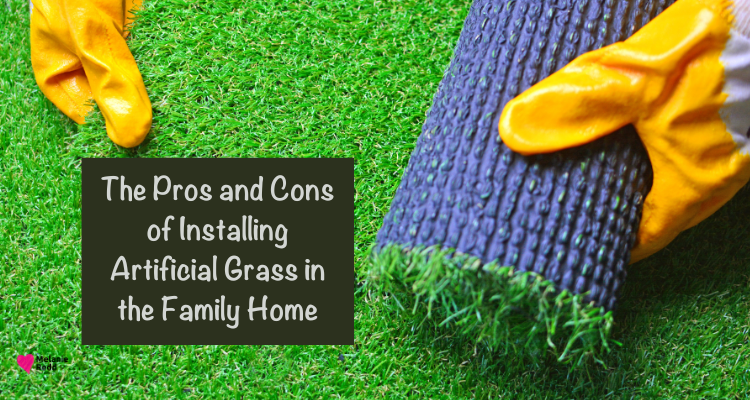The Pros and Cons of Installing Artificial Grass in the Family Home

The Pros and Cons of Installing Artificial Grass in the Family Home
There are many opinions about the use of artificial lawns, particularly about sustainability and biodiversity.
However, there are two sides to every argument, and in this article, we go deeper into the key objections against the use of fake grass. Even more, we will balance out the arguments with developments and innovations in fake grass technology.
Also, we will share which positions it more favorably as a ground-covering choice for homes and businesses.
The Pros and Cons of Installing Artificial Grass in the Family Home – Is it environmentally friendly?
If used irresponsibly then yes, artificial grass can be damaging to the environment. Most grass products are manufactured from three different synthetic materials – polypropylene, polyethylene, and nylon.
Indeed, cheap grass products that come across from China are not recommended. These products do not have the durability of the more established homegrown products. They are quickly worn down and need to be replaced much earlier than a quality product, which can last for up to 20 years or more.
Also, the disposal of these products is a moot point. Until recently they ended up in landfill sites. This is highly egregious to the environment, particularly if it has only been in use for a year or two.
Moreover, choosing a higher-quality product is essential if you want to use fake grass in your Barnet garden. And even more importantly, the technology now exists to recycle all those bits of fake grass that might have been destined for the landfill in the past. This not only refers to the old products that have been lifted from existing projects but also any remnants and trimmings from the installation process.
The Pros and Cons of Installing Artificial Grass in the Family Home – Is Fake Grass Sustainable?
These pieces are taken for recycling and turned into everyday urban furniture products. These include such items as park benches, flower boxes, stadium seating, and edging boards. So yes, it is sustainable.
Does it block the growth of other plants?
When installing artificial grass the ground needs to be properly prepared with sand infill and meshing to prevent weed growth. The design of the grass allows for water the drain through, but not for weeds to grow through, so in effect it does prevent the growth of unwanted plants.
However, this does not mean that it cannot be laid as part of an overall landscaping design in which other plants are considered. The use of the grass is not an ‘either-or’ approach to external design. Rather it can be integrated in the same way as other ground-covering products such as paving and decking.
Or cover ugly areas that are awkward to reach, or tidy up narrow strips where there is no space for planting. This versatility makes the product an extremely useful and adaptable product for any type of garden landscaping project.
What about biodiversity?
Equally, biodiversity can also be built into an overall design. A patch of artificial lawn can be accompanied by several containers planted with bee and insect-attracting flowers. These include plants such as honeysuckle, crocuses, and lavender.
Also, insect life is crucial to the biodiversity of space, promoting pollination and providing natural pest control. Clever research and design can ensure that your outdoor space incorporates this essential aspect of the natural world. Integrating artificial grass where appropriate does not diminish this in any way.
Taking all this into account there can be no room for doubt that using artificial grass in garden and landscaping projects is a negative one. In truth, it is a versatile, robust product that is a viable alternative to any other external ground covering.
Were you encouraged by what you read?
Then, would you share this article with a friend, co-worker, or family member?
Or, maybe you can send it to a friend or family member?
This blog occasionally uses affiliate links and may contain affiliate links.
Additionally, Melanie Redd is a participant in the Amazon Services LLC Associates Program.
This is an affiliate advertising program designed to provide a means for sites to earn advertising fees. These are earned by advertising and linking to amazon.com.
Also, for more on my disclosure policy, click HERE.
© Melanie Redd and Hope Ministry, 2024. Unauthorized use and/or duplication of this material without express and written permission from this blog’s author and/or owner is strictly prohibited.
Further, excerpts and links may be used, provided that full and clear credit is given to Melanie Redd and Hope Ministry.
Please give appropriate and specific directions to the original content.



0 Comments